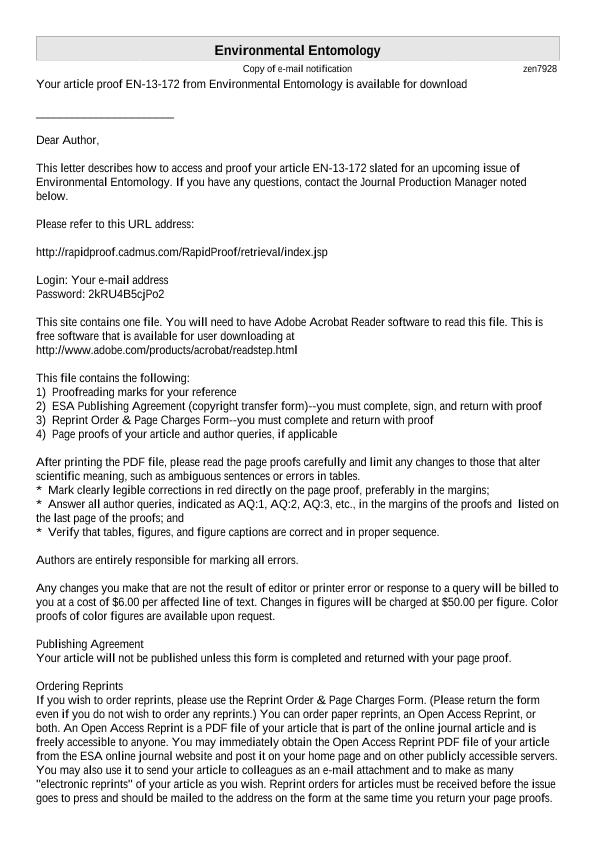Artículo
Optimal Conditions to Rear Phorid Parasitoids (Diptera: Phoridae) of Atta vollenweideri and Acromyrmex lundii (Hymenoptera: Formicidae)
Fecha de publicación:
04/2014
Editorial:
Oxford University Press
Revista:
Environmental Entomology
ISSN:
0046-225X
e-ISSN:
1938-2936
Idioma:
Inglés
Tipo de recurso:
Artículo publicado
Clasificación temática:
Resumen
Phorid flies have been considered viable options for biological control of leaf-cutter ants because they are highly specific to these hosts, producing direct mortality and also affecting the normal functioning of colonies. Designing protocols for mass rearing of these insects requires knowing the temperature and humidity conditions that optimize their development in terms of duration, survivorship and longevity of adults. We reared Apocephalus setitarsus Brown, Eibesfeldtphora trilobata Disney, and Myrmosicarius brandaoi Disney, which are specific leaf-cutter ant parasitoids of Atta vollenweideri Forel, and Apocephalus neivai Borgmeier and Myrmosicarius catharinensis Borgmeier, which are parasitoids of Acromyrmex lundii Guérin-Méneville. Phorids were maintained under one of five different rearing conditions, 20°C high humidity (20HH), 24°C low and high humidity (24LH and 24HH), and 28°C low and high humidity (28LH and 28HH). Flies from all species could complete their development under all the conditions tested. As expected, the 20HH treatment significantly lengthened all developmental periods in all species, whereas the shortest duration was achieved under 28HH. Although pupal survivorship was highest at 24HH, the greatest longevity of adults was achieved at 20HH. Percentage of pupae obtained and pupal survivorship also exhibited the highest values at 24HH. The rearing efficiency index was highest for all species at 24HH. Therefore, we suggest this temperature and humidity combination as the most suitable for rearing these species, whereas the 20HH treatment is ideal for maintaining adults for longer periods, which would be advantageous for synchronizing matings and mass releases of adults in the field.
Palabras clave:
Phoridae
,
Leaf-Cutter Ant
,
Temperature
,
Humidity
Archivos asociados
Licencia
Identificadores
Colecciones
Articulos(SEDE CENTRAL)
Articulos de SEDE CENTRAL
Articulos de SEDE CENTRAL
Citación
Guillade, Andrea Cecilia; Folgarait, Patricia Julia; Optimal Conditions to Rear Phorid Parasitoids (Diptera: Phoridae) of Atta vollenweideri and Acromyrmex lundii (Hymenoptera: Formicidae); Oxford University Press; Environmental Entomology; 43; 2; 4-2014; 458-466
Compartir
Altmétricas




